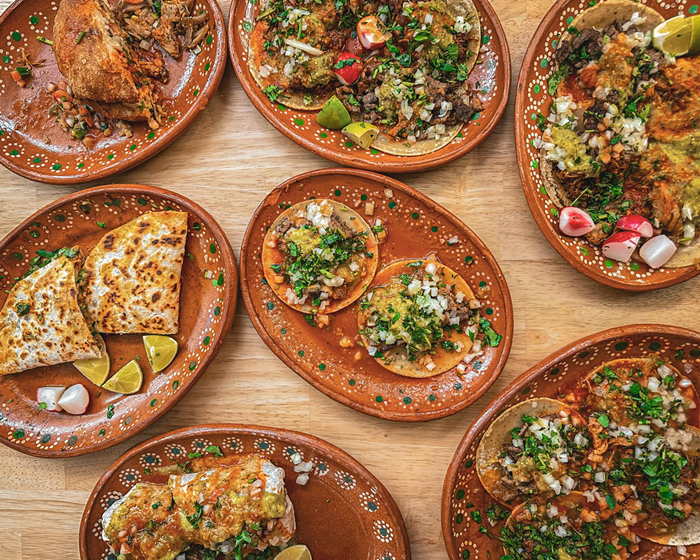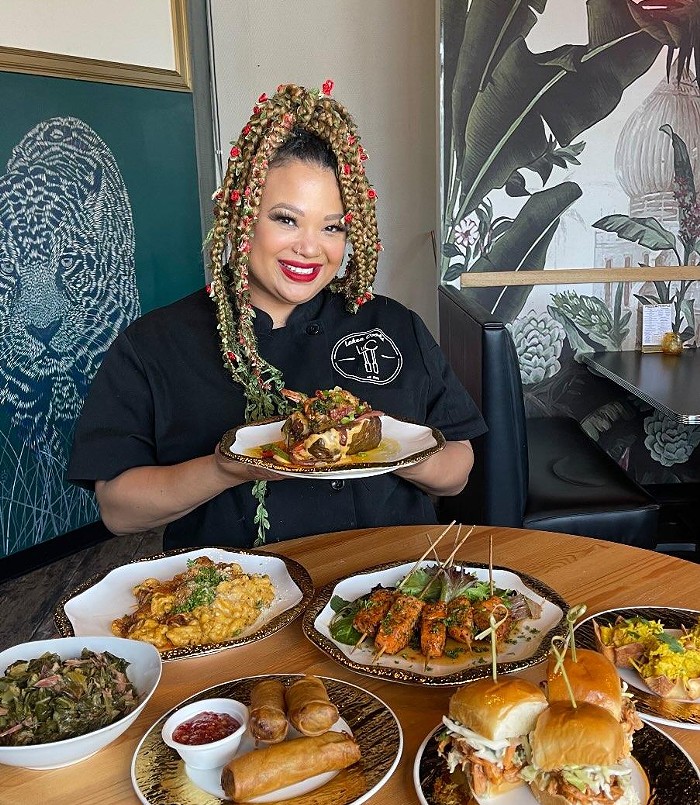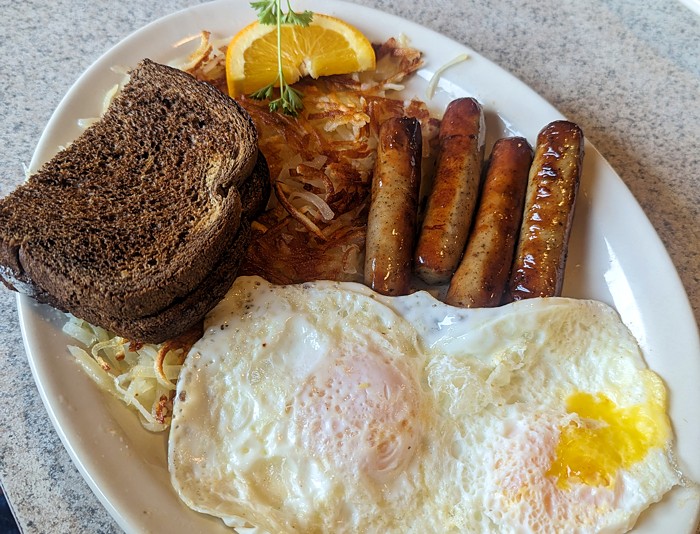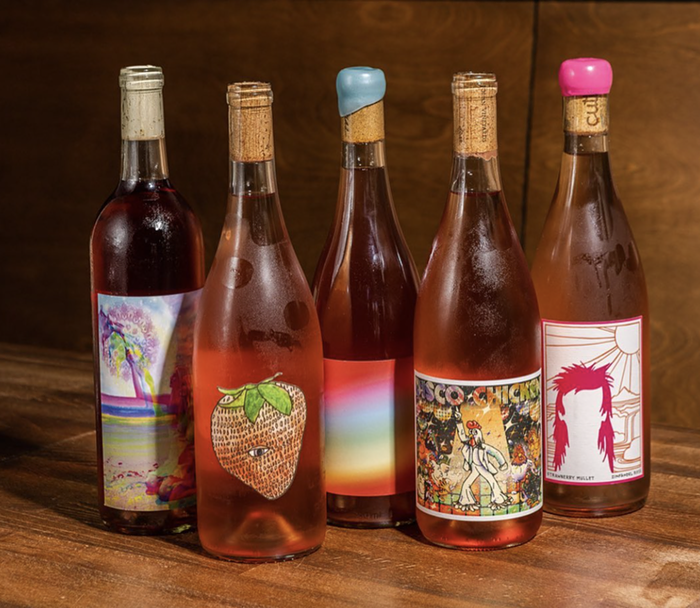This story begins on 23rd and Cherry. Here, about 15 years ago, Mesob, an Ethiopian restaurant, opened its doors for business. Anyone who lived near this location at that time, the late '90s, saw the grand opening as something of a godsend because there wasn't another restaurant for miles around (or what felt like miles around). That corner, and the Central District as a whole, was still in the shadow of the bleak crack years, but its future was becoming clearer by the day—young white Americans were increasingly moving in, the older black Americans were increasingly moving south, and the value of homes was going up and up. In this twilight—the space between black and white, the end and the beginning—Mesob not only provided the area with a venue that was close, a place you could walk to, but also served food that was prepared by someone who knew how to cook.
That person was Zufan Abebe, a lively woman who had a delightfully rough boom in her voice and, between working in the kitchen and manning the bar, always seemed to find time to talk to her customers about everything. And as I ate from my big plate (the greens, the light-brown lentils, the slices of okra, the bits of beef—never overcooked or undercooked), I would watch her talking to black Africans, black Americans, and white Americans with the same mirth. Though her first language dominated her English words and their syntax, you always caught her meaning and way of thinking. The general impression her gestures, eyes, and body gave was of one who was at once world-weary and optimistic—she had seen it all, but tomorrow was surely a brand-new day.
A big TV dominated the north wall of the first Mesob. The TV was not, however, the kind of flat screen that graces the restaurants of our day, but one with a super-bulky back. Her son would watch shows or sports as she worked, as she talked, and as her customers ate. Mesob was in this location for two years, but its departure was not a blow to the neighborhood, because by that time several Ethiopian restaurants had settled in the area—though their cooking was not as consistent, as yummy, as satisfying as Zufan's.
Thirteen years later, I entered the Frye Art Museum to attend the opening of the exhibit Intangible Effects (No. 1), organized by a University of Washington professor, Tad Hirsch. The installation concerned the Seattle City Council's decision to demolish Yesler Terrace, a 70-year-old housing development that supported a substantial East African population. Hirsch worked with this community to gather and display the sounds and images of a world that was soon to become history. To my surprise, Ethiopian food was served at the opening. To my surprise, the dishes were really good (particularly the stewed cabbage). To my surprise, Zufan walked out of the museum's kitchen. She had prepared the meal and was now receiving praise from all around. Eventually, she recognized me, and an old conversation was renewed. How had she been? How were the children? How was Mesob? I knew she had relocated her restaurant to the edge (14th and Jefferson) of Little Addis Ababa (the center of which is on 12th and Jefferson). I also knew many Seattle University students were fans of the bar there. Zufan told me that she was being kicked out of the place. When you hear the answer, you will wonder why I even asked why. "They are going to build town houses! Four town houses. I'm moving from a great place so that we can have more town houses in this city."
"Where will you go?" I asked her.
"I have no idea. We have to wait and see."
Two years later, I left Saigon Deli with a sandwich, walked to the corner of 12th and Main, and, before heading to work, noticed two things: first, the ghostly buildings of Yesler Terrace, and second, a sandwich board that read "Mesob." Zufan had found a new place, here in Little Saigon. She is a survivor. But when a few nights later I located the new Mesob, I discovered another name on the restaurant's green and yellow awning: Shewaber. Zufan is its owner, and she still works in the kitchen, but the space is about half the size of the second Mesob. The new joint contains eight or so tables, a bar, a real flat-screen TV (no bulky nothing), and pictures of the Imperial Majesty Haile Selassie I.
I ordered a glass of white wine ($5) and two beef dishes: ketfo ($9.49) and zilzil tibs ($11). The change in name and location has had no perceivable impact on the food—it's still as rich and tasty as the first meal I had many years ago at the Mesob on 23rd and Cherry. As always, the plate easily feeds two people and the salad dressing has a strong punch. I asked Zufan, who in my eyes has not aged in all of this time, why she changed her restaurant's name—after all, "mesob" is a word the mouth loves forming. Zufan explained that it was for personal reasons (the world-weariness appeared in her eyes). She then told me the new name represents glorious things in her culture and also a new direction in her life (the optimism grew in her eyes).
"See that," she pointed to a piece of wood art over the bar, "that is a Shewaber. It's one of the five gates in Harar, where I come from." And what are the five gates of Harar? I decided to save that question for another visit. ![]()




















